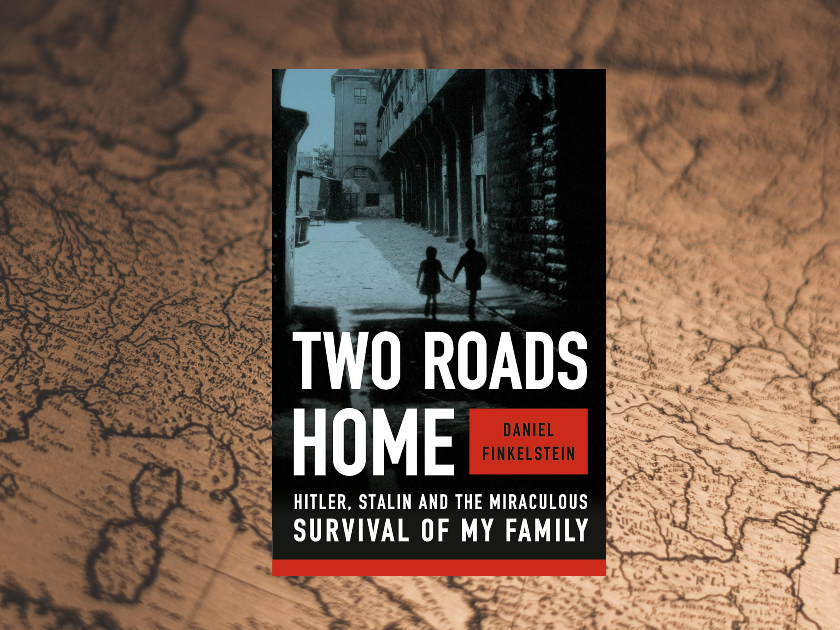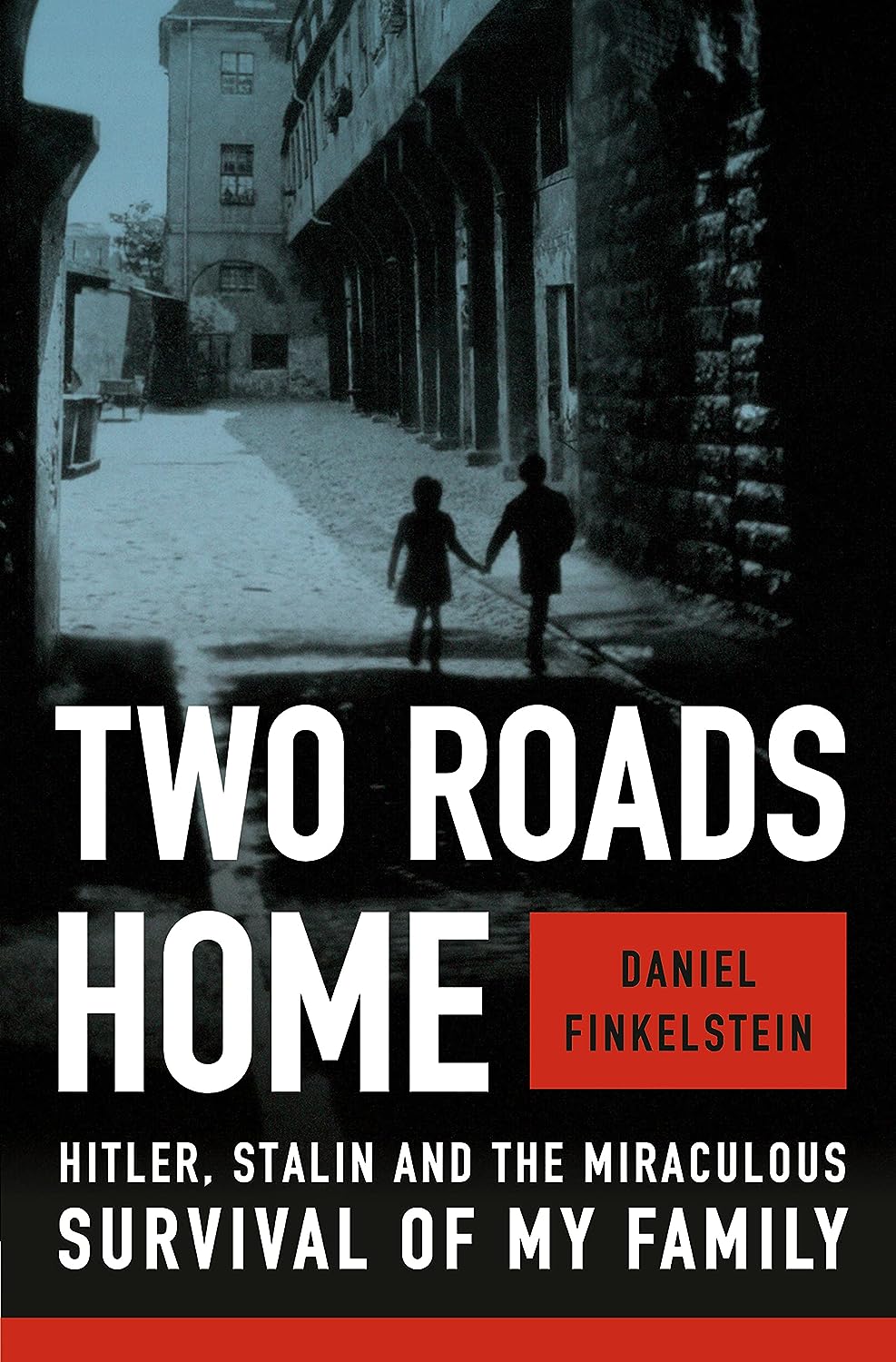Join a community of readers who are committed to Jewish stories
Sign up for JBC’s Nu Reads, a curated selection of Jewish books delivered straight to your door!

Background photo by Jakob Braun on Unsplash
On a March weekend in 1920, a car flying a diplomatic flag set off towards the Reich Chancellery in Berlin for a meeting with the Chancellor of Germany. Only the man heading to the meeting wasn’t a diplomat, no meeting had been scheduled, and the Chancellor of Germany wasn’t really the Chancellor, he just said that he was.
In the turbulent hours before this strange incident, there had been a coup in Berlin. As columns of troopers wearing jackboots, and helmets with swastikas on them took over government buildings, the Cabinet fled, leaving in convoy for Dresden. In their place was installed an administration headed by a portly, bull-necked, shaven-headed man called Wolfgang von Kapp, the head of the Fatherland Party and the creature of militant right-wing soldiers.
The causes of the coup were various, the programme of the plotters confused, but Alfred Wiener, my maternal grandfather, was certain the takeover could only mean trouble. The men taking over were exactly the sort he’d been warning people about ever since he came back from the war. Extreme, in the grip of conspiracy theories about the betrayal of Germany, and, worst of all from Alfred’s point of view, convinced that the Jews were at the root of the country’s troubles.
So, he reasoned, he’d have to do something about it. He persuaded a friend — he was very good at persuading people — to lend him his diplomatic car, drove straight through the armed ranks of the rebels and stopped at the Reich Chancellery. Then he got out, demanded to see Kapp, somehow succeeded in doing so, and remonstrated with him about antisemitism.
In the circumstances, Alfred was perhaps fortunate that within a couple of days the putsch had collapsed, with Kapp fleeing in a taxi with a knotted sheet containing his belongings secured to its roof. If the plotters had succeeded, it’s unlikely Alfred would have survived very long.
The confrontation with Kapp was classic Alfred behaviour. It was physically brave, almost foolhardy; it was clear-sighted, understanding the threat the extremists posed to Germany’s Jews; it was prescient, seeing before others did what might lie ahead for Jews; it took personal responsibility for the fate of his fellow jews; and it represented his almost limitless faith, his almost boundless optimism, that rational argument and insisting on the truth could change things.
This romantic idea of his nation made what happened to him a particularly poignant tragedy.
These characteristics were responsible for taking him in his life and career from triumph to disaster before triumph again. They were to be praised as the qualities of a great man and criticised as the beliefs and behaviour of a naif. They saw him rise to become one of the leaders of Germany Jewry and to hold that position through the tumultuous twenties and into the thirties as the Nazi threat grew. And he took them with him into exile when a meeting with Hermann Göring and its menacing aftermath made it obvious that he would have to leave Germany.
_____
At the end of 1918, Alfred Wiener had returned to Berlin after more than three years of fighting in the war, to the realisation that his battles were just beginning.
He had responded to his army call-up in April 1915 without the slightest hesitation or reservation. He felt a strong sense of national attachment and duty, a view reinforced among many German Jews by a desire for the defeat of Russia, the country of barbaric pogroms. He had fought on both the Western and Eastern Fronts, waged war with heavy artillery and armoured vehicles, acted as an interpreter in the German-Turkish campaign, and edited the army newspaper in Jerusalem and Damascus. And he had almost died. A severe bout of dysentery came close to ending his campaign, and his life, at the beginning of 1917. For his gallantry he was awarded two medals — the Iron Cross (second class) and the Iron Crescent. Both these accolades were solid rather than spectacular, but Alfred was proud of his service.
There were lots of things people said about Alfred — that he was humorous, that he was bookish, that he was bald from a young age, that he made friends easily, that he was hard working, that he was opinionated; after his death, newspapers were full of attempts to capture his looks and his personality and what made him so beguiling. But if he were asked, he would have wanted any description to start with the fact that he was German.
He was born in 1885 Potsdam, and one of his closest associates, the great sociologist Eva Reichmann, remarked after his death that:
When he pronounced the very name “Potsdam” you could hear in his sonorous voice the distant echo of a clarion call. He loved Potsdam and was imbued with its historical tradition. Up to his last years, he used to meet some of his former classmates once a year; so convinced was he of the mysterious “spirit of Potsdam” as he conceived it, that when I once asked him if he was not afraid that there might be Nazis among the old boys, he replied without hesitation, as if stating an indisputable maxim: “Of course not, they are from Potsdam Gymnasium.”
He maintained throughout his life, this strong feeling of belonging to his country and culture. This romantic idea of his nation made what happened to him — his exile, the loss of his nationality, the way the Holocaust engulfed his family, the destruction of the liberal values he associated with his country’s better nature — a particularly poignant tragedy.
From Two Roads Home: Hitler, Stalin, and the Miraculous Survival of My Family by Daniel Finkelstein. Reprinted by permission of Doubleday, an imprint of the Knopf Doubleday Publishing Group, a division of Penguin Random House LLC. Copyright © 2023 by Daniel Finkelstein.

Purchase your copy of Two Roads Home: Hitler, Stalin, and the Miraculous Survival of My Family by Daniel Finkelstein today.
Daniel Finkelstein is a weekly political columnist at The Times of London. Formerly an adviser to Prime Minister John Major, he was appointed to the House of Lords in 2013. He recently became a director of Chelsea Football Club. He is married with three children and lives in Pinner, a suburb of London. He is grandson of Dr. Alfred Wiener, founder of the Wiener Library, the world’s oldest Holocaust archive, where he is a patron.